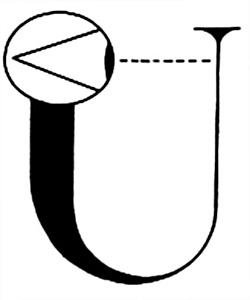L
Lunitik
Guest
Yes, in my mind a theory can be proven and thus become a law.
But then it ceases to be a theory...
It is a small difference, but an important one in the context of the current discussion.
Yes, in my mind a theory can be proven and thus become a law.
I'm fully in agreement and don't know why you would think otherwise.
If we are to talk about science, we should discuss it scientifically - if for no other reason than to see how disgusting it is as a pursuit. Perhaps it will show how futile scientific exploration into religion really is.
So we should have just accepted the 17th century Christian view that the sun revolved around the earth, which was based on the bible?
And we should just accept the Adam/Eve story of creation as religious fact, or the more palatable "Intelligent Design", and allow it to be taught in our public schools? No "scientific exploration into religion" is merited?
And for all the "psychics" that are on every street corner of Los Angeles, we should just trust what they say if they claim it's backed by their religion?
There are many people who believe as you do, that scientific exploration into religion is futile. In fact I know of two that are running for President right now
Which came first: the theory, or the law?
I've never heard that you can't prove a theory before, maybe I have a different understanding of the word than what is commonly agreed upon
Who decided the law of gravity? Who defined the gravitational constant? Newton? It seems to me, the law of gravity existed before every man, including Newton. At least, that is what scientists tell me.Neither, the actuality came first.
Observations then theorized about what is happening, and when they were decided that this is so, it became a law. Still, nothing has ever happened to the actuality, it just laughs at our stupidity.
Who decided the law of gravity? Who defined the gravitational constant? Newton? It seems to me, the law of gravity existed before every man, including Newton. At least, that is what scientists tell me.
Yes, I believe the actuality is that the law of gravity existed before Newton measured and declared it.The actuality existed before the word "gravity", no one decided it, it cannot be decided. Only whether the observation is accurate can be decided, and even then it doesn't mean it is totally correct as radarmark just pointed out...
Have these evolutions to the theory of gravity changed anything at all about the actuality of what is being described? No, not at all, what we have called gravity simply goes on with its nature.
Yes, I believe the actuality is that the law of gravity existed before Newton measured and declared it.

I second IG. Adding that I, for one, do not use the terms in other than a scientific context (I am old), and would never even think about using them in the "fuzzy" way that Lunitik is.
For a little background see me posts so far on "science of the web". If they are confusing you can always comment or PM.
Pax et amore omnia vincunt, radarmark
I've been reading some of the links IG posted and I feel that I have entered a level of science where it is very obvious that it is the world described by humans, and thus flawed.
It's a lot more neat in school, with simple equations that explain the world around us with a clear distinction between laws and theories. And I'm not as comfortable on this new level, simply because of the human factor.
It reminds me of rants I had a few years back when I argued on the internet. I was stuck between the camps of religion and science and defended them both when either was attacked by the other. To me, religion and science explain the world from the same point but go in different directions, and it annoyed (annoys) me endlessly when the two sides argue with their own language being unable to understand what the other is even saying. They may not even be trying.
But they do have so much in common, being human. To me, both sides accept what is written in their holy texts, to atheists it is books on physics and biology, but they will of course never admit this. Yes, science gives each and every person the ability to actually understand what is being said in these books and the people can follow the reasoning from beginning to end and come to their own conclusions. But people are people and most of us lack either intellect or education. So we trust in the majority or their priest...sorry, teacher!
I have always wondered if I was more natural science or social science and I'm beginning to think the latter. Social science is very comfortable being fuzzy but natural science wants to be ordered, but I don't feel it is.
